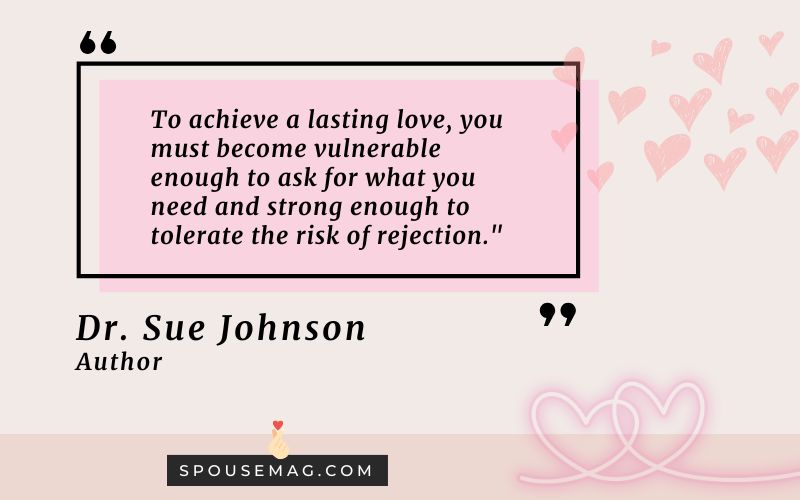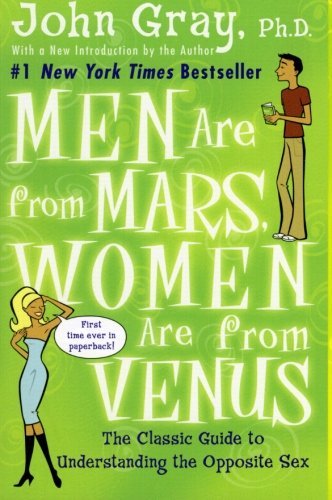Reading Hold Me Tight by Dr. Sue Johnson was like having a deep, enlightening conversation with a trusted mentor about relationships. As a clinical psychologist, Johnson has a deep understanding of how couples connect and, sometimes, disconnect.
She doesn’t just talk about relationships in a dry, academic way; she brings them to life, making you reflect on your own experiences.
Her expertise in Emotionally Focused Couples Therapy (EFT) shines through, offering a blend of scientific and compassionate guidance.
The Interplay Between Sex, Intimacy, and Love
Reading Dr. Johnson’s exploration of the connection between sex, intimacy, and love was a revelation. She argues that the secret to a fulfilling sex life isn’t about trying the latest adventurous position but about cultivating emotional safety.
I’ve seen countless couples come into my office with sexual complaints, only to discover that the root of the problem lies in unresolved emotional issues. Her insights have helped me to approach couples therapy with a more comprehensive perspective. By addressing emotional and sexual concerns, I’ve been able to help couples create more fulfilling and harmonious relationships. It’s not just about fixing the sex; it’s about building a love that lasts.
Dr. Johnson’s assertion that “great sex is not about sexual prowess, performance, or even frequency. It is about being emotionally present and feeling secure in your partner’s love” truly hits home for me.
Critique: Overlooking Individual Differences
While Dr. Johnson’s focus on emotional safety is well-supported by research, some critics argue that this perspective overlooks the role of individual differences and preferences in sexual satisfaction.
While Johnson’s focus on emotional connection is valid, it is too narrow for those who find that trying new things together keeps their relationship vibrant. Additionally, cultural and personal factors influence what individuals find satisfying in their relationships, suggesting that a one-size-fits-all approach does not address everyone’s needs.
Emotional Connection
Johnson asserts that emotional connection is the bedrock upon which a fulfilling relationship is built. She explains that feeling emotionally secure allows us to explore and enjoy life more fully, including our sexual relationships.
Reading this, I couldn’t help but think about how often I’ve seen this play out in real life. I’ve heard it a million times: “I want to desire him, but I just can’t.” Often, it’s not about him being unattractive or anything like that. It’s about feeling emotionally connected and safe. Women are wired differently when it comes to sex, and Johnson nails it.
When couples feel emotionally safe, everything else tends to fall into place, from how they communicate to how they interact physically.
Critique: Balancing Emotional Connection with Physical Attraction
While emotional connection is undeniably important, let’s not throw the baby out with the bathwater. Physical attraction and chemistry are still key players in the game of love. It’s a delicate balance between emotional intimacy and physical desire. Johnson’s approach is incredibly helpful for many, but it does not capture the full diversity of what makes relationships work.
The Role of Secure Attachment in Relationship Satisfaction
The book highlights how secure attachment leads to more satisfying relationships, especially in the bedroom. Johnson compares securely attached couples to dancers in sync, moving together effortlessly. This metaphor clicked for me because it’s a great way to describe how emotional connection enhances physical intimacy.
I’ve seen many couples who, once they’ve built that secure attachment, find that their whole relationship, including their sex life, improves dramatically.
Critique: Overlooking Non-Secure Attachment Dynamics
However, it’s important to acknowledge that not all successful relationships are built on what we traditionally consider “secure” attachment. I’ve known couples who have a bit more distance and independence in their relationship, and it works for them.
They do not fit the mold of a securely attached couple, but they’re happy and fulfilled. Johnson’s focus on secure attachment is valuable, but it’s not the only path to a successful relationship.

The Consequences of Insecure Emotional Connections
Johnson doesn’t shy away from discussing the downsides of insecure emotional connections, especially how they impact your sex life. She talks about patterns like “solace sex” and “sealed-off sex,” which are ways that couples cope with emotional distance.
This part of the book reminded me of so many couples I’ve worked with who come in thinking they have sexual problems, but what they have is an emotional disconnect. It’s eye-opening to see how closely these issues are linked.
Critique: Missing Hope for Insecure Connections
That said, I think it’s worth mentioning that even couples with insecure connections find their way back to each other. I’ve seen it happen. While Johnson’s take on the risks of insecure connections is spot on, it comes across as a bit pessimistic. With the right tools and commitment, even relationships that seem rocky can turn around. The book might benefit from emphasizing that hope a bit more.
The Science of Bonding
In the final sections, Johnson’s dive into the biology of love was fascinating. I mean, who knew that oxytocin could be such a relationship superhero? It’s like she’s giving us the secret formula to happily ever after. She uses research to back up her points, which I appreciate because it gives weight to her arguments.
What I love about this part of the book is that it’s not just theory, it’s practical advice that couples can use to strengthen their relationships. After reading this, I felt more hopeful and inspired about the potential for love and connection in our lives.
Critique: Ignoring Non-Biological Aspects of Love
Still, while the science is compelling, I think it’s crucial to recognize the limitations of a purely biological perspective. While biology provides a foundation for love, it’s the emotional, psychological, and social dimensions that give it depth and meaning.
What People Are Saying About the Book
Here’s a roundup of reviews from people who have read Hold Me Tight by Dr. Sue Johnson:
Mark, The Busy Professional
Hold Me Tight was a quick, effective read. It offered practical advice to reconnect with my partner amidst a hectic schedule. Simple yet impactful.
Ken and Liza, The Long-Term Couple
We’ve been together for years. This book breathed new life into our relationship. The exercises were eye-opening. Highly recommend!
Tom, The Single Reader
As a single person, I found value in understanding relationship dynamics. Hold Me Tight helped me reflect on my attachment style and what I want in a partner.
Jane, The Skeptic
I was doubtful, but Hold Me Tight changed my mind. The emphasis on emotional connection is spot on. It’s practical advice, not just theory.
Rating and Recommendation
★★★★☆ (4.5 out of 5 stars)
I wholeheartedly recommend Hold Me Tight to couples seeking to deepen their bond. Whether you’re experiencing challenges or simply looking to strengthen your relationship, this book provides valuable insights and tools. It’s also a helpful resource for individuals wanting to understand relationship dynamics better.
While the book offers general guidance, it’s essential to remember that every relationship is unique. If you’re facing significant challenges, consider seeking professional counseling in addition to reading Hold Me Tight.

As a married wife, founder, and editor of SpouseMag.com – these guides are based on my own personal experiences, observations, research and insights. I am transparent about being inspired by the life and work of the two greatest experts in the relationship space – Dr. John and Julia Gottman, and Harville and Helen. They two are some of the strongest couples, researchers, authors, and counselors when it comes to marriage and relationships. My advice and guides are based on my insights and research, and they are not an alternative to professional advice.




